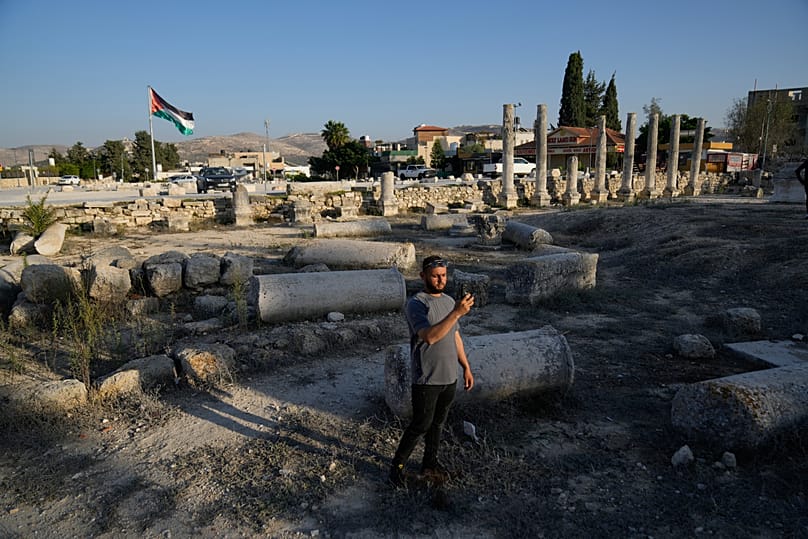The move coincided with the establishment of a new illegal outpost by Israeli settlers near Bethlehem and comes as the Israeli government faces growing pressure to crackdown on settler violence.
Israel plans to seize large parts of a major historical site in the West Bank, Sebastia, according to a government document seen by the Associated Press.
 ADVERTISEMENT
ADVERTISEMENT
 ADVERTISEMENT
ADVERTISEMENT
Anti-settlement watchdog group Peace Now said that as the site is roughly 450 acres, the move marks the largest seizure of archeologically important land.
"The plan would seize nearly 1,800 dunams belonging to the Palestinian villages of Burqa and Sebastia, including thousands of olive trees," the organisation wrote in a statement, adding that "the land is privately owned and registered in the land registry by Palestinian owners".
The document gives Palestinians 14 days to file objections to the order.
The site has been associated with the capital of the ancient Israelite kingdom Samaria, and Christians and Muslims believe it's where John the Baptist was buried. The anicent site has been on UNESCO's tentative list of World Heritage Sites for the State of Palestine since 2012.
Israel cited heritage preservation as the reason for the expropriation, and has long used the rhetoric of protecting Jewish biblical heritage as a reason to claim Sebastia. In 2023, the Israeli government announced plans to develop the site into a tourist attraction and allocated more than 30 million shekels (€8 million) to develop the site.
However, human rights organisations warn that the move will displace Palestinians nearby and bring an end to Palestinian-led tourism at the site.
"In the cases of Deir Qal’a and Deir Samaan, the sites now lie inside the settlements of Alei Zahav and Peduel, and Palestinians have no access to them," Peace Now pointed out.
"Under international law governing occupied territories, public-purpose expropriations are permitted only when they serve the needs of the local population," it added.
Growing pressure on Israel to crackdown on settler violence
The move coincided with the establishment of a new illegal outpost by Israeli settlers near Bethlehem and comes as the Israeli government faces growing pressure to crackdown on settler violence.
The chairman of the local Etzion settler council, Yaron Rosenthal, claimed the settlement was a “return to the city of our matriarch Rachel, of King David," and believed it would “strengthen the connection" between Etzion and Jerusalem.
Israel seized control of the West Bank, Gaza and East Jerusalem at the end of the Six-Day War in 1967, a conflict between Israel and a coalition of Arab states.
The occupied West Bank is home to some 3 million Palestinians, who largely live under Israeli military rule, and more than half a million Israeli settlers.
The international community overwhelmingly considers West Bank settlements illegal under international law.











